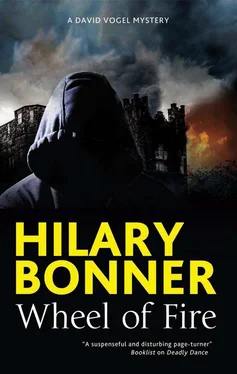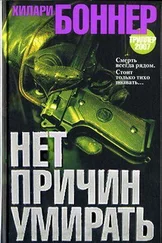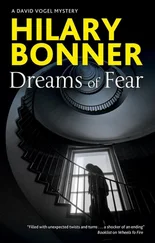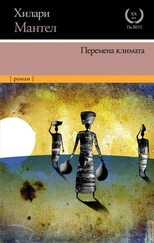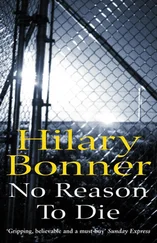‘Yes. The phone’s not been live since.’
And neither will it be, thought Vogel. He considered Micky Palmer’s choice of words.
‘You said around Victoria Station,’ he queried. ‘Not the station itself?’
‘Apparently not on the concourse, no. Somewhere just outside. They couldn’t be precise. He took a call from Martha’s number, she called just like you said she would, and he was on the phone for a few minutes.’
‘Right, that’s something, but how on earth can we find out where he went next? Assuming he ditched his phone, which he almost certainly would have done after Martha’s call. We know he doesn’t have his own vehicle. He travelled to London by train, according to Martha. Trains from Victoria don’t come this way, but they do go all over, including Gatwick airport, and then there’s the Victoria bus terminus.’
‘If he wasn’t located actually in the station, perhaps he’s hired a vehicle, boss,’ suggested Saslow.
Vogel took a deep breath. ‘Dawn, you’re a genius,’ he said. ‘There aren’t that many hire car pick-up places actually in central London, but most of the big boys operate out of Victoria. It’s worth checking anyway.’
‘Well, yes boss, but even if he has hired a car, would he have used his own driving licence and credit card?’ asked Saslow.
‘I’m hoping he may have done just that, before Martha called him, before he knew we were on to him. Get Polly to check it out straightaway.’
Vogel turned back to Palmer. ‘So, have you got anything else, Micky?’ he asked.
‘Yes, boss. I’ve been focusing on Sir John and Jack Kivel’s military careers. It seems they didn’t just become Paras at the same time, they joined the SAS together in 1982, just before the Falklands War. Kivel was twenty-three, already an NCO, Sir John was a bit older, twenty-six, and a captain. He was promoted to major four years later, aged thirty, young for the rank, in peacetime anyway.
‘Wherever Sir John went, he made sure Kivel did too. The SAS is for elite soldiers, everybody knows that. But apparently Kivel and Fairbrother stood out, even in that company, as shit hot. Tough as old boots, the pair of ’em. They specialised in undercover operations, the least said about the better, which often even other SAS men wouldn’t touch. They quit together too, when Sir John left to take over Fairbrother International, and Kivel’s been in Sir John’s employ ever since. Or he was until a year ago... you know that though, boss.’
‘Yes, but maybe his alleged sacking was camouflage,’ volunteered Saslow, who had returned from briefing Polly Jenkins. ‘Looks like it now, doesn’t it? Kivel was always Fairbrother’s man, and George Grey was hired to take the fall. How’s that for a theory?’
‘It would be a better one if Sir John wasn’t dead,’ commented Micky Palmer.
‘Yes, it would, wouldn’t it,’ responded Vogel. ‘Excuse me a moment. I have a couple of calls to make.’
The first call was to Karen Crow.
The pathologist answered at once. ‘Don’t you ever stop working, Vogel?’ she remarked by way of greeting.
‘Not when I have four murders to solve,’ replied Vogel. ‘Look, you told me you’d formally identified Sir John through his dental records, right?’
‘Yes. There wasn’t enough left of the poor bastard to effectively test for DNA. Not unusual with fire victims, as you know.’
‘But just as indisputable, isn’t that so?’
‘Absolutely. Yes.’
‘OK. All the same, I wouldn’t mind a word with his dentist. Do you have his details handy? A mobile number would be good if you’ve got one. I’d like to talk to him right now, if I can.’
‘Would you indeed? What are you up to, Vogel?’
‘Karen, I’m in a hurry.’
‘All right, all right, I’m pretty sure he called me back from his mobile when I originally contacted him, so it should be in my phone. I’ll text you.’
Two minutes later Vogel was speaking to a rather surprised Mark Rowland, Sir John Fairbrother’s Exeter-based dentist, who confirmed that he had seen Sir John just three weeks before his death, and that he had been able to supply a full set of dental records to Karen Crow.
‘His teeth were in a very bad state,’ said Rowland. ‘He was in the advanced stages of Parkinson’s, which can have an extremely damaging effect on a patient’s teeth. We’re not entirely sure whether it’s the drugs or the disease which does the most damage. Several of Sir John’s teeth were crumbling away, and he was suffering quite severe pain. To be honest, there wasn’t a lot that could be done. I just tried to make him as comfortable as possible.’
‘I don’t suppose there could be any doubt about these records, could there, Mr Rowland?’ asked Vogel.
‘Doubt? Certainly not. I’d completed the usual charts, and there were also X-rays.’ The dentist paused. ‘Are you suggesting this surgery may have made some sort of mistake, Mr Vogel?’ he asked sharply.
‘No, no, of course not,’ replied Vogel, quickly changing tack. ‘I just wondered, how long had Sir John been your patient?’
‘Oh, not long. Nine or ten months, I think. If that. I understood he had used a London dentist until he became ill. If you want the exact date he registered with us, my receptionist could check for you in the morning—’
‘No, that won’t be necessary, Mr Rowland,’ interrupted Vogel. ‘One more thing, though, had you ever met Sir John Fairbrother before he became your patient?’
‘No. Never.’
Vogel leaned back in his chair. He was following a train of thought which was surely far too wild to seriously consider. Nonetheless, he wasn’t going to stop until he had fully explored it.
He called up the records of data so far gathered, including interviews made by the team temporarily based at Wellington police station, both door-to-door locally and with any persons of interest who may have been in contact with either Sir John or his nurse Sophia Santos.
An interview with Santos’ sister in the Philippines, conducted by local police, ascertained that Sophia had reported that the demands made of her, particularly in terms of working hours, were exceptionally high. But she had taken the post because the salary offered had also been exceptionally high, apparently two to three times what the nurse would have expected in the UK. In addition, there was promise of a bonus, to be paid after Sir John’s death, on condition that she continued to care for him until that eventuality.
Santos had, of course, been the only live-in nurse, assisted by Janice Grey. Three agency nurses who had been occasionally employed, were also interviewed. Each gave an almost identical account. They had been called only to work night shift, and Sir John, on high levels of medication, had been asleep most of the time and uncommunicative for the rest.
Paul Preston Evans, the swimming pool man DC Dawson had told Vogel about, had been interviewed as it seemed he’d been one of the last people, outside of those directly caring for Sir John, to see him alive.
Preston Evans had confirmed that he’d caught Sir John unawares in his swimming pool about a month before the fire and been immediately ushered out by Janice Grey.
‘Sir John looked terrible, I was quite shocked by his appearance,’ Preston Evans had said. ‘He’d always been a strong fit man for his age, and I couldn’t believe how he’d deteriorated. It was as if he’d shrunk. And he looked so weak. A shadow of his former self.’
The interviewing DC had then asked how long it had been since Paul Preston Evans had previously seen Sir John.
‘Oh, it was months, maybe a year, I suppose,’ said Preston Evans.
And yes, he confirmed, Sir John had then looked perfectly well and the same as always.
Читать дальше
